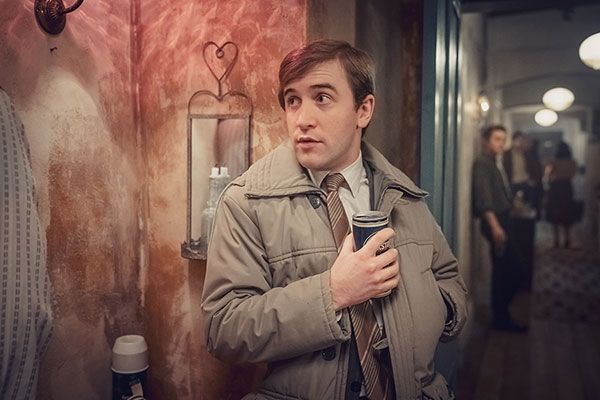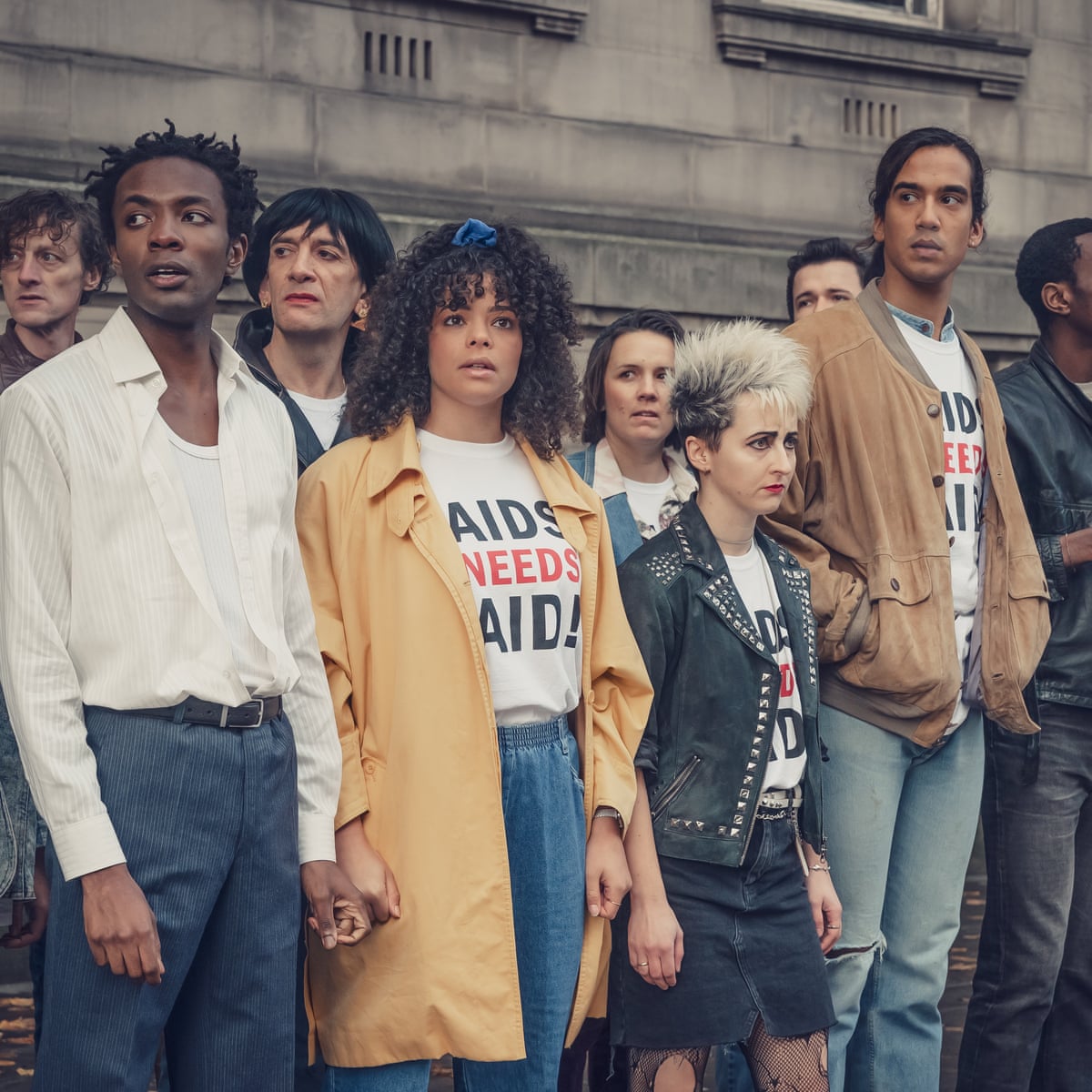Friday, 26th February 2021
Written by Millie Breeze
-
It’s a Sin is a poignant series that explores the beginning of the HIV/AIDS crisis from 1981 to 1991, telling the story of a group of young men within the gay community in London. The mini-series has been well-received by many, allowing us to reflect upon the impact AIDS had on thousands of people in the 80s and beyond, whilst also highlighting the importance of sexual health awareness today. It’s a Sin conveyed a range of challenges faced by the LGBT community in the UK in the 80s, with themes of race, coming out and stigma being central to the premise. Importantly, the series demonstrates a need for sexual health awareness and support regarding HIV, which can be seen when looking at Ritchie’s story.

Source: Channel 4
From the start, we see Ritchie as a charismatic, outgoing 18-year-old who yearns for London where he can live more freely and authentically as himself. However, as time goes on, it becomes clear that Ritchie’s confidence quickly turns into denial surrounding the AIDS epidemic, ultimately becoming his downfall. Fuelled by misinformation, Ritchie is just one of the thousands of people during the 80s who wave off the AIDS crisis as a conspiracy. Rumours of a disease that targeted only gay people seemed ridiculous to Ritchie and his friends at the time, with AIDS seemingly just another form of prejudice aimed at the gay community with the purpose of shaming them. However, this misinformation about the causes and realities of AIDS is what proved to be fatal to so many, which reinforces the need for reliable sources of information regarding HIV and sexual health, particularly within the gay community. It’s a Sin portrayed misinformation as coming from the top- with TV advertisements and healthcare providers often providing false information, although in recent times this has been the case far less. Nevertheless, HIV information is still not always readily provided and accurately perceived by society, so the provision of appropriate support for HIV is still very much necessary today, in order to improve health outcomes for so many.

Source: Channel 4
One of the main forms of misinformation at the time was the belief that having multiple sexual partners increased the likelihood of contracting HIV. Whilst this may have increased the risk, it was not the sole factor for contracting HIV, despite this being heavily reported in the media. This issue was exemplified by Colin, who had only one sexual partner but still contracted HIV. Again, this demonstrates the power of misinformation and the need for proper forms of sexual health education to be provided.
Ritchie’s experiences also represent the stigma surrounding HIV, which can still be somewhat seen now. It’s a Sin demonstrated that when men contracted HIV and became very ill with AIDS, they were often ‘hidden’ at home or in hospitals, with family members desperate to hide the reality of why they were ill. In Ritchie’s case, we see his parents struggle to accept his illness, with his mother very much consumed by her anger and denial.

Source: Channel 4
We also see this when looking at Jill’s experiences. Jill was a friend of Ritchie and the others and was someone who was there for gay/bi men when their families were not. Jill soon became aware of the AIDS crisis but struggled to find out any proper information that would help her friends, and it was this fear of the unknown that led her to take action into her own hands. We see her trying to seek information about AIDS from a doctor, who refuses to talk to her about it since he claims it does not affect her. Not only is this stereotype incorrect, as HIV can affect anyone, but this refusal to openly talk about HIV/AIDS was damaging to so many people, leading them to become ashamed of it themselves.
At the time, Section 28 legislation made it difficult to provide targeted HIV campaigns towards gay/bi men within schools and for local authorities to provide funding towards HIV prevention work, causing even more stigma regarding HIV. Whilst this legislation has now been lifted and there is an array of sexual health organisations such as Trade raising awareness for HIV, HIV is often still seen as ‘hidden’, with many still holding misperceptions surrounding the illness. The series showcases the need for further sexual health education to be provided, in order to overcome the stigma of HIV.
In Ritchie’s last moments, he recalls how much fun he had, wanting his life to be celebrated rather than hidden, which was the case for so many who contracted HIV. Ritchie wanted to be seen for who he was, rather than being defined by his illness. This reinforces the need to see people as individuals, not conditions, with HIV being just one part of Ritchie’s life. This links to the holistic approach to health, where factors such as different environments and emotions influence a person’s experiences and ability to cope with a condition, which is exemplified by Ritchie. Tying in with previous themes of stigma and shame, Ritchie is reluctant to seek support for AIDS due to the hostile environment that the gay community were experiencing as a result of misinformation and prejudice regarding HIV. He, and so many others, experienced feelings of shame and did not want others to know about their AIDS diagnosis, which impacted the likelihood of them seeking treatment. It’s a Sin conveys the necessity of a holistic approach to health, which Trade Sexual Health fully encapsulates, making us aware of the many factors that can impact upon experiences with HIV/AIDS that must be recognised within healthcare.

Source: Channel 4
It’s a Sin has been very impactful, highlighting the need for sexual health support and awareness, especially for HIV/AIDS. The series has led to an increased awareness of the misconceptions surrounding HIV, and the uptake for HIV testing has already begun to increase. We can see how far sexual health services have developed since the 80s and 90s, with charities like Trade being at the forefront of sexual health awareness. Trade was set up in the late 1980s as an HIV prevention project, aiming to provide a localised perspective on HIV/AIDS awareness, and is a good example of the positive sources of support for the LGBT community developed as a result of the AIDS crisis. However more still needs to be done to ensure that HIV is something that is spoken about more often, and for opportunities to challenge stigma to be facilitated.
It's A Sin is available to watch for free in the UK on All4 (upon free registration)
Find out more about testing for HIV with Trade

